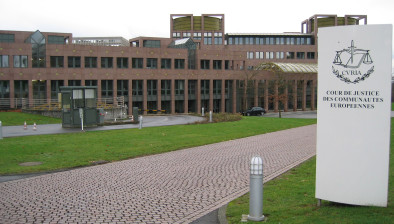Supreme Court: Appeal on admissibility of phone traffic and location data dismissed

The Supreme Court has dismissed an appeal in an attempted murder case concerning the admission of mobile phone traffic and location data into evidence by the Special Criminal Court.

About this case:
- Citation:[2024] IESC 22
- Judgment:
- Court:Supreme Court
- Judge:Mr Justice Maurice Collins
Delivering judgment for the Supreme Court, Mr Justice Maurice Collins opined: “Making all due allowance for the nature of the unlawfulness here and its impact on the interests of Mr Smyth and Mr McAreavey, it appears to me that the community’s interest in the adjudication of the case against them on its merits weighed decisively in favour of the admission of the evidence and it is the exclusion of that evidence rather than its admission that would bring the administration of justice into disrepute.”
Background
On 10 May 2017, shots were fired by the single occupant of a black Lexus vehicle at Mr James Gately at a petrol station on the Clonshaugh Road. Mr Gately survived as he was wearing a bulletproof vest, but received a serious head injury. Both witnesses and CCTV footage identified Mr Smyth as the gunman.
Mr Smyth was subsequently tried and convicted in the Special Criminal Court of the attempted murder of Mr Gately. The prosecution relied upon inter alia traffic and location data from a SIM card which it attributed to him, and which allegedly demonstrated movements consistent with that of the Lexus that day. The mobile phone operators had retained that data pursuant to s.3 of the Communications (Retention of Data) Act 2011.
At the time of Mr Smyth’s trial, the Supreme Court had made a reference for a preliminary ruling to the Court of Justice of the European Union (CJEU) in Dwyer v The Commissioner of An Garda Siochana & Ors [2020] 1 ILRM 389 concerning the retention of mobile phone data for the purpose of dealing with serious crime and the safeguards for accessing that data in light of Mr Justice Tony O’Connor’s finding that provisions of the 2011 Act were inconsistent with Article 15(1) of the ePrivacy Directive 2002/58/EC read in light of the Charter of Fundamental Rights of the European Union (CFREU).
The CJEU ruled in Case C-140/20 GD v Commissioner of An Garda Síochána that EU law precludes national measures for the general and indiscriminate retention of traffic and location data for the prevention of serious crime, as opposed to threats to national security which could be treated differently.
However, the reference was still pending when Mr Smyth was convicted, with the Special Criminal Court relying upon the data as admissible evidence. Mr Smyth appealed to the Court of Appeal. The Court of Appeal having upheld the decision of the Special Criminal Court, Mr Smyth appealed to the Supreme Court. A related appeal was made on behalf of Mr Gary McAreavey, with whose phone number Mr Smyth’s phone number had communicated.
A seven-judge Supreme Court considered the circumstances in which location and call data is admissible in evidence against an accused in light of the CJEU’s ruling, and in particular, the test for admissibility, the significance of neither appellant accepting ownership of the SIM cards in question, and whether the Special Criminal Court erred in admitting the data into evidence.
The Supreme Court
Giving the majority judgment for the Supreme Court, Mr Justice Collins considered CJEU jurisprudence, the 2011 Act, the ePrivacy Directive and the Data Retention Directive 2002/58/EC. Having regard to joined cases C-203/15 and C- 698/15 Tele2; GD, the judge confirmed: “This issue is relatively straightforward. Admissibility is governed by Irish law, subject to the principles of equivalence and effectiveness.”
Mr Justice Collins also noted that the case of C-746/18 Prokuratuur “makes it clear that the principle of effectiveness does not require the per se exclusion of evidence gathered in breach of EU law. Any such rule of exclusion would, of course, be fundamentally inconsistent with the basic principle that admissibility is a matter for national law.”
Turning to the applicable test for admissibility, the judge found that the test set out in People (DPP) v JC [2017] 1 IR 417 was applicable where enumerated and/or unenumerated constitutional rights were breached in the gathering of evidence, noting in respect its applicability to CFREU rights that “to apply any less-exacting test would not be consistent with the principles of equivalence and effectiveness because it would effectively accord rights guaranteed by the Charter a lesser status than rights protected by the Constitution. That would not be consistent with the obligations of the State — and of this court – to respect, and give full effect, to EU law, having regard, in particular, to Articles 4(3) and 6(1) TEU.”
Moving to consider whether the appellants’ disclaimer of ownership over the phone numbers precluded them from asserting a breach of their rights to privacy, Mr Justice Collins determined that the burden of proof rested on the DPP and that the appellants “were not required to forego their fundamental rights as criminal defendants — and in particular their right not to incriminate themselves — by making an admission that the numbers were indeed theirs in order to object to the admissibility of the data…”
The judge also concluded that whilst incursions into privacy may be authorised by law for the investigation of crime, “where such acts are undertaken otherwise than in accordance with law, a breach of privacy occurs and it is no answer to say that, as a result of the breach, evidence relating to or disclosing the commission of a criminal offence has been obtained. That evidence may ultimately be admissible in a criminal trial but that does not take away from the fact that, in such circumstances, it was obtained in violation of the right to privacy.”
Applying JC and the subsequent case of DPP v Quirke (No 2) [2023] 1 ILRM 445 to the facts, the Supreme Court determined that the phone data was prima facie admissible on the basis that the reliance by Gardaí on the 2011 Act was not a “deliberate or conscious” breach of the CFREU in circumstances where the 2011 Act was on the statute-book at the time and where the breach arose as a result of a “subsequent legislative development”.
The court also considered the “backstop” in JC which precludes the admissibility of evidence which could never have been lawfully obtained, finding: “I do not read JC as requiring the director to retrospectively identify a hypothetical alternative legislative regime that could have been in place in 2017 in lieu of the 2011 Act, on the basis of which the court can be satisfied that the specific data at issue here would have been lawfully retained and accessed. There is too much uncertainty and contingency for any such exercise to be meaningful or reliable.”
Mr Justice Collins continued: “Rather, it seems to me that this aspect of the JC test is intended to exclude evidence otherwise admissible in accordance with JC which could never have been obtained lawfully — in other words evidence obtained by a method and/or in circumstances irreconcilable with fundamental constitutional norms. As was discussed at the hearing, evidence obtained in breach of an operative privilege such as legal professional privilege or marital privilege would appear to fall into this category. So would evidence gathered by inherently unconstitutional means — such as by oppression, intimidation, torture or duress.”
Finding it “clear that traffic and location data has no privileged status under either the Constitution or the Charter”, the judge further concluded that in light of inter alia the nature and probative value of the evidence, the fact that it was gathered in accordance with the 2011 Act, the seriousness of the crime concerned and limited and targeted nature of the access obtained, “if, as Quirke (No 2) seems to suggest, the backstop is properly understood as being directed at more general considerations of fairness, it is, in my view, equally clear that no basis for excluding the evidence arises here. Critically, the reliability of the evidence has never been disputed.”
Conclusion
Accordingly, the Supreme Court determined that the Special Criminal Court did not err in admitting the traffic and location data and dismissed Mr Smyth’s appeal.
Director of Public Prosecutions v Caolan Smyth [2024] IESC 22










